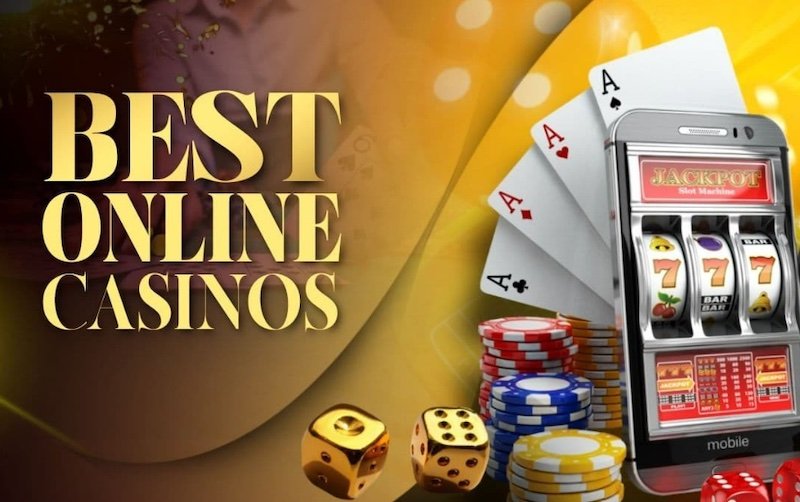The Evolution of Gambling From Ancient Times to Modern Day 3

The Evolution of Gambling From Ancient Times to Modern Day
Gambling has a rich history that stretches back thousands of years. Its roots can be traced to ancient civilizations, where games of chance were often associated with religious rituals and ceremonies. In this article, we will explore the evolution of gambling from its early days to its current status as a multi-billion dollar industry, including the emergence of online platforms like The Evolution of Gambling From Land to Online https://takabet-bd.com/ that have transformed the way people gamble.
1. Ancient Beginnings
The gameplay of chance has been a part of human culture since at least 3000 BC. Evidence from ancient Mesopotamia suggests that dice made from bones were used in games of chance. The Chinese also played a role in shaping early gambling practices, with records of gambling activities found in texts dating back to the Han Dynasty (206 BC – 220 AD). They developed games that included betting on the outcomes of events and involved various forms of chance.
2. The Classical Era: Greece and Rome
In ancient Greece, gambling was often associated with various games, including the dice game known as “astragaloi.” Influenced by Greek culture, the Romans also embraced gambling, enjoying games like “tabula” and betting on gladiatorial contests. The Romans formalized gambling into various societal activities and set the stage for future gambling traditions. However, with the rise of Christianity, gambling began to be viewed more negatively, leading to periods of regulation and restriction throughout history.
3. The Medieval Period: Regulation and the Rise of Lotteries

During the medieval period, many European nations enacted laws governing gambling. However, this did not quell the popularity of games of chance. Lotteries began to emerge as a method of raising funds for public projects, such as building roads and fortifications. In the 16th century, lotteries spread rapidly across Europe, becoming a social activity that provided entertainment for the masses while also benefiting state finances.
4. The Birth of Modern Gambling: The 17th and 18th Centuries
The 17th century saw considerable changes in the gambling landscape. The establishment of casinos began in Venice in the 1638 with the opening of “Il Ridotto.” This marked the transition toward organized gambling establishments. France’s gambling houses also gained significance during this period, as gaming became an essential feature of the aristocratic lifestyle. The innovative game of roulette emerged in this era, establishing itself as a central fixture in casinos worldwide.
5. The 19th Century: The American Influence
The 19th century marked a significant period for the evolution of gambling, especially in America. The Gold Rush and the influx of gamblers to the West contributed to the establishment of saloons and gambling halls. The introduction of poker and other card games gained immense popularity during this time, leading to the foundation of gambling as a crucial aspect of American culture. Additionally, the creation of betting on horse races became a well-accepted pastime, leading to the establishment of racetracks across the country.
6. The 20th Century: Prohibition, Regulation, and Las Vegas
As the 20th century progressed, gambling faced significant fluctuations in legality and popularity. Many places introduced prohibition laws against gambling, but underground gambling quickly emerged. In the 1930s, the Great Depression led to legalized gambling in several states to generate revenue. Las Vegas emerged as a major gambling hub, promoting luxurious resorts and casinos that featured elaborate entertainment options. The establishment of the Nevada Gaming Control Board in 1955 helped regulate the industry, leading to unprecedented growth.

7. The Digital Revolution: Online Gambling
The digital revolution revolutionized the gambling industry. With the introduction of the internet in the 1990s, online gambling began to take shape. The first online casinos started appearing, allowing players to gamble from the comfort of their homes. The rise of mobile technology and smartphones further propelled the growth of online gambling, making it more accessible than ever before. Players can now engage in various forms of gambling, from poker to sports betting, at any time and from anywhere.
8. The Modern Landscape: Regulation and Security
Today, online gambling is a multi-billion dollar industry that continues to grow. Countries have implemented various regulations to ensure that players are protected and the industry remains fair and secure. Many online platforms are regulated by reputable authorities, providing players with assurance in their gaming experiences. Moreover, technological advancements in blockchain and encryption have greatly enhanced the security of online gambling, allowing for secure transactions and fair play.
9. The Future of Gambling
The future of gambling is both exciting and uncertain. With the rise of virtual and augmented reality technologies, we might witness new, immersive gambling experiences that bear resemblance to real-world environments. Additionally, the potential legalization of sports betting in various jurisdictions promises to disrupt traditional gambling structures further. As the industry continues to evolve, responsible gambling initiatives are also gaining traction, emphasizing the importance of player safety and awareness.
Conclusion
The evolution of gambling has taken a long and winding road from ancient practices to the digital age. It has transcended cultural and societal boundaries, adapting to changing norms and technologies. While it remains a popular form of entertainment, the challenges surrounding regulation, security, and responsible gambling are ever-present. As we move forward, understanding this evolution can provide valuable insights into the future of gambling and its role in society.
;
